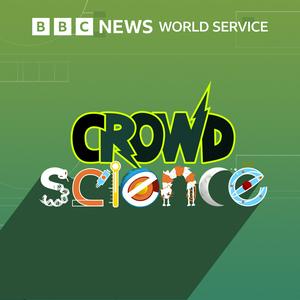CrowdScience listener Griffith in Ghana, isn’t JUST a CrowdScience listener. He’s also a listener to our sister show on the World Service, Unexpected Elements. But he’s noticed something funny.
In the weekly Unexpected Elements multiple-choice quiz, the answer is almost NEVER ‘a’. It’s nearly always ‘b’, or ‘c’. Why is this? When we set the quiz, why are we so reluctant to choose option ‘a’?
His question leads presenter Alex Lathbridge on a journey into the murky depths of our brain, where he discovers the cognitive biases which so often trip us up in games of chance, or probability. Your brain might be a marvellous machine when it comes to figuring out how to understand the world, but sometimes, in the name of efficiency, it takes clever little short-cuts to the answer.
This pragmatic approach to problem solving helps us manage an incredibly complicated world. But occasionally, especially when it comes to mathematics, chance, and probability, it leads us in the wrong direction. With the help of mathematician Kit Yates from the University of Bath in the UK, and some rather stale sweets, Alex will be finding out how to win at games of chance.
Alex also explores the world of gaming, and gambling. Games of chance in which our intuition sometimes lets us down, and makes us choose unwisely. Rachel Croson, Professor of Economics at the University of Minnesota, USA, talks us through how the human brain can work against us.
But can knowledge of those human pitfalls help us to win? Alex hears from Maria Konnikova, who turned her research on the psychology of poker into a successful gambling career. Can we really use maths to beat our brains, and learn how to win more often?
Presenter Alex Lathbridge
Producer Emily Knight
Editor Ben Motley
(Photo: Close up image of multiple choice question. Credit: BBC)


